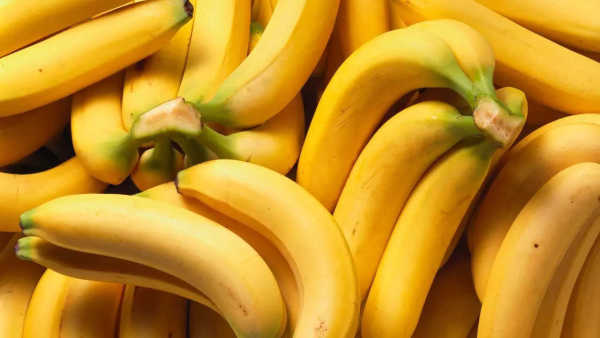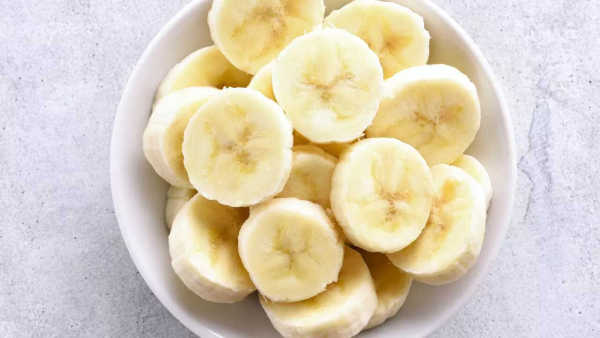
Bananas are one of the most popular fruits in Indian households, loved for their sweet taste, convenience, and nutritional value. However, many people struggle with bananas turning brown too quickly or becoming mushy before they can be eaten. The key to keeping bananas fresh longer is not refrigeration or expensive storage gadgets. Instead, it is about understanding how bananas ripen and using simple techniques to manage the process.
Bananas produce ethylene gas, a natural hormone that accelerates ripening. By controlling the effects of this gas and storing bananas properly, you can extend their freshness, keep them firm and yellow, and reduce waste. Whether you live in Delhi, Mumbai or smaller towns across India, these tips are practical and easy to apply. This article explores the best ways to store bananas, how to slow ripening, and smart methods to enjoy bananas at their peak sweetness for longer.
How bananas ripen and why they turn brown
Bananas naturally produce ethylene gas, which triggers the ripening process. Ethylene causes starch in the fruit to convert into sugar, making bananas sweet and soft. While this process is natural, it can happen too quickly if bananas are exposed to warmth, moisture, or other fruits that also produce ethylene.
Once bananas start turning brown, they become less appealing and their texture changes, making them soft and mushy. Understanding why bananas ripen quickly is essential for keeping them fresh. Factors like temperature, storage method, and exposure to other fruits all play a role. By managing these factors, you can slow down the ripening process and enjoy bananas over several days rather than a few.
Best temperature and storage techniques to keep bananas fresh

Bananas ripen best at temperatures between 15°C and 20°C. At this range, the fruit matures gradually and retains its firm texture. Storing bananas below 13°C can cause chilling injury, turning the skin black while the fruit inside remains edible but less enjoyable.
To store bananas effectively, keep them in a cool, dry place away from direct sunlight. Avoid placing them near heat sources like ovens or windows. If you want to slow down ripening further, wrapping the stems in plastic or foil helps trap ethylene gas at the source, keeping the rest of the fruit fresh for longer. This simple method can add a few extra days of freshness to your bananas.
How to store bananas with other fruits safely
Many fruits, such as apples, avocados, and tomatoes, produce high levels of ethylene gas, which accelerates the ripening of nearby bananas. To prevent bananas from turning brown too quickly, store them separately from these ethylene-producing fruits.
A practical approach is to use a fruit bowl or basket specifically for bananas, ensuring they do not come into contact with other fruits. This simple adjustment can make a significant difference in maintaining freshness and preventing premature spoilage. Keeping bananas separate also allows better airflow around the fruit, further slowing ripening.
Using banana hangers and proper storage for longer freshness

Hanging bananas on a banana hanger or hook is an effective way to prevent bruising. Bananas resting on a flat surface can develop pressure spots, which accelerate browning. A hanger allows air to circulate evenly around the fruit, keeping it firm and fresh for longer.
For extra convenience, combine hanging with stem wrapping to slow ethylene release. Once bananas reach your preferred ripeness, they can also be refrigerated to prolong freshness. While the skin may darken in the fridge, the fruit inside remains firm and sweet, making this an ideal method if you cannot consume all the bananas immediately.
Freezing overripe bananas and other useful tips
Overripe bananas are perfect for freezing. Peel them and store them in an airtight container or freezer bag. Frozen bananas are excellent for smoothies, baking, or as a frozen snack, and they retain their nutritional value for months.
Avoid storing bananas in plastic bags at room temperature, as trapped moisture can accelerate browning. Instead, use open-air storage, a fruit bowl, or a breathable container. Regularly check your bananas for ripeness so that you can refrigerate or freeze them at the optimal time. These small steps ensure you enjoy bananas at their best without waste.
Storing bananas correctly can make a big difference in freshness, taste, and texture. By understanding the ripening process, maintaining the right temperature, separating bananas from other fruits, and using simple hacks like hanging or wrapping stems, you can extend the shelf life of this popular fruit. With these techniques, you can enjoy sweet, firm bananas for longer, reduce waste, and always have fresh bananas ready to eat.
Disclaimer: This article is for general informational purposes only and is not a substitute for professional medical advice, diagnosis, or treatment. Always seek the guidance of a qualified healthcare provider regarding any medical condition or lifestyle change.
Also read|
Spice up your meals with chutney recipes, fresh flavours and tips
 Bananas are one of the most popular fruits in Indian households, loved for their sweet taste, convenience, and nutritional value. However, many people struggle with bananas turning brown too quickly or becoming mushy before they can be eaten. The key to keeping bananas fresh longer is not refrigeration or expensive storage gadgets. Instead, it is about understanding how bananas ripen and using simple techniques to manage the process.
Bananas are one of the most popular fruits in Indian households, loved for their sweet taste, convenience, and nutritional value. However, many people struggle with bananas turning brown too quickly or becoming mushy before they can be eaten. The key to keeping bananas fresh longer is not refrigeration or expensive storage gadgets. Instead, it is about understanding how bananas ripen and using simple techniques to manage the process.

